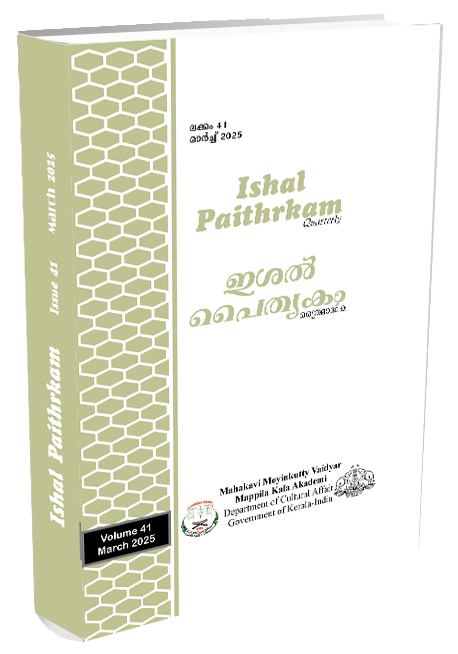Capitalism and the Construction of Corpo-Realities: A Study of Select Malayalam Short Stories
Keywords:
Body, Corporeality, Marginality, Bare Life, CapitalismAbstract
The paper makes an attempt at tracing the construction and mobilization of various corporeal identities under the Capitalist regime, in the light of select Malayalam short stories. It also delineates how metamodern elements have outrun postmodernity in addressing questions of existence and survival, especially in the lives of the marginalized. The imposition of a deceptive homogeneity and an illusion of equality by Capitalism for the mobilization of bodies and their commodification is highlighted here. The paper also tries to capture how Capitalism ascribes a uniform consumer subjectivity to people as a whole, who are further ensnared by the market in an unending chain of dissatisfaction and unsatiated desire. The paper also focuses on the debasement of certain lives as ‘bare life’, which is the life of a political outcast, and the transformation of the body as a cultural artifact, a site of political inscriptions, an object of fetish, a biological entity and a marker of socio-political identity and class distinctions, especially in the Capitalist world.
Downloads
References
Adorno, T. (2005). Minima moralia: Reflections on a damaged life (E. F. N. Jephscott, Trans.). Verso.
Agamben, G. (2017). The omnibus homo sacer (D. Heller-Roazen, Trans.). Stanford University Press.
Bargár, P. (2020). The modern, the postmodern, and. . . The metamodern? Reflections on a transforming sensibility from the perspective of theological anthropology. Transformation An International Journal of Holistic Mission Studies, 026537882097694. doi:10.1177/0265378820976944
Baudrillard, J. (2005). The finest consumer object: The body. In M. Fraser & M. Greco (Eds.), The body: A reader (pp. 277–282). Routledge.
Benyamin. (2018). tkmem-]qÀ, . [Solapur]. In K. Sajeev (Ed.), Mathrubhumi Aazhchappathippukathakal—2017 (pp. 23–29). Mathrubhumi Books.
Blayney, S., Berridge, V., & Weicht, B. (Eds.). (2023). The body productive: Rethinking capitalism, work and the body. Bloomsbury Academic.
Bourdieu, Pierre (1984). Distinction: A social critique of the judgement of taste. Routledge & Kegan Paul Ltd.
Echikkanam, S. (2016). hmÀ¯m icocw, . [The body of news by Sheniya Jose]. In Kathakal. D C Books. [PDF download].
Giddens, A. (1990). The consequences of modernity. Polity Press.
Marcuse, H. (1987). Eros and civilization: A philosophical inquiry into Freud. Routledge.
McGowan, T. (2016). Capitalism and desire: The psychic cost of free markets. Columbia University Press.
Reith, G. (2019). Addictive consumption: Capitalism, modernity and excess. Routledge.
Thomas, V. (2019). Bµ {_m³U³, . [The man with the happiness brand by Sheniya Jose]. In N. Noushad (Ed.), Mathrubhumiaaz hchappathippu kathakal-2018 (pp. 25–39). Mathrubhumi Books.
Downloads
Published
Issue
Section
License
Copyright (c) 2025 ISHAL PAITHRKAM

This work is licensed under a Creative Commons Attribution-NoDerivatives 4.0 International License.

